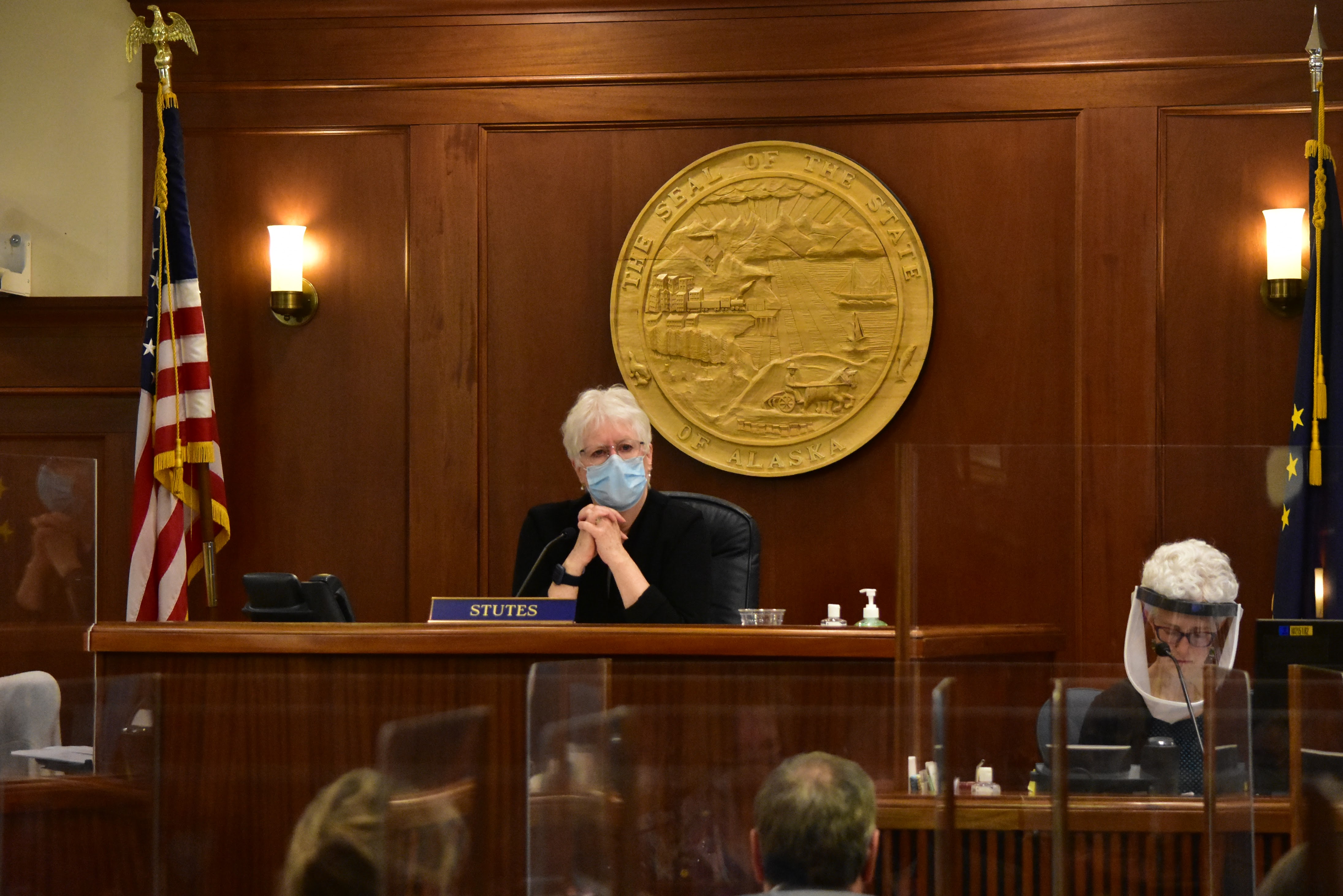
The Alaska House of Representatives will take more time before beginning the final debate on its version of the state budget.
House Speaker Louise Stutes deferred action on the budget on Sunday, after minority-caucus Republicans protested not having dozens of their amendments heard.
Stutes, a Kodiak Republican who caucuses with the mostly Democratic majority said she wanted to send two bills — one dealing with the operating budget and one dealing with the mental health trust budget — back to the House Rules Committee to allow for additional time for the majority and minority caucuses to discuss them.
The current version of the House operating budget would spend $4.2 billion in state funding, more than $200 million less than the previous budget. But it doesn’t address permanent fund dividends.
House Republicans had proposed dozens of amendments that hadn’t been heard. They said they met the deadline set by Stutes. But they lost a key vote early Sunday afternoon, which prevented the amendments from being heard.
Several minority-caucus Republicans wanted to speak about their concerns about how debate on amendments was cut off. This led Stutes to repeatedly tell them to stick to the budget itself.
Big Lake Republican Rep. Kevin McCabe said the decision to stop hearing amendments disenfranchised the constituents of his caucus members.
With tempers flaring on the floor, the House took a four-hour break before Stutes called for delaying action on the budget.
The dispute came a day after the two sides repeatedly haggled over legislative rules, including what language they could use to talk about other members and the executive branch of government.
After both the House and Senate pass their versions of the budget, there will be a committee with members from both chambers that will work out their differences.
The constitutional deadline to end the session is May 19. A key date between now and then is May 10, when the federal government is expected to provide guidance on how states can spend their share of American Rescue Plan Act money. For Alaska, that is $1 billion over two and a half years.
Depending on the federal guidance, that money could be used to support state spending, potentially freeing up state revenue for PFDs. Lawmakers have also suggested that a state savings account — the Constitutional Budget Reserve — could also support dividends, without forcing the state to draw more than planned from the permanent fund’s earnings reserve.
The Constitutional Budget Reserve has roughly $900 million, but state officials have said at least $500 million is needed to manage the monthly flow of money in and out of state coffers.
The House rejected a proposed amendment on Saturday that would have paid dividends according to the formula in a 1982 state law. The formula hasn’t been used the past five years. Including permanent fund earnings through March, dividends would be nearly $3,400 this year under the formula.
But they would also draw more than $2 billion more than planned from the permanent fund’s earnings reserve. House majority lawmakers have said draws of that size threaten the future of both the permanent fund and PFDs.
The House Special Committee on Ways and Means introduced a bill on Friday that would fund $500 dividends this year. Dividends at roughly that level would allow the state budget to be balanced over the next decade without new taxes or spending cuts. But it would be the smallest PFD level since 1985 and the lowest ever when adjusted for inflation.
